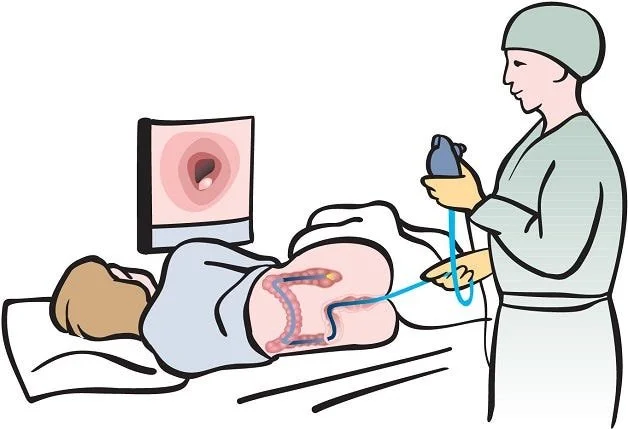Modern technology has become an integral part of life, from smartphones to social media. While convenience has increased, so has the need to examine how constant connectivity affects mental health. Exploring anxiety and how excessive technology use impacts mental health will equip you with knowledge and awareness.
Anxiety often manifests as worry, apprehension, or fear about future events or outcomes. Physical symptoms may include a racing heart, restlessness, and difficulty concentrating. While occasional feelings of unease are common, excessive or persistent anxiety could interfere with daily life.
Many factors contribute to anxiety, including genetics, environment, and life experiences. It’s worth noting that anxiety is not inherently bad; in small doses, it motivates someone to prepare for challenges or avoid dangerous situations. But issues arise when anxiety becomes overwhelming or chronic.

Understanding the Effects of Technology Use on Anxiety
Technology has transformed how we communicate, work, and entertain ourselves, but itsexcessive use can contribute to feelings of anxiety. Constant notifications can create a sense of urgency, and over time, they can increase stress levels. When consumed regularly, social media often showcases unrealistic portrayals of success, beauty, and happiness, leading to feelings of inadequacy or fear of missing out (FOMO).
The blue light emitted by screens may disrupt sleep patterns, which help support emotional well-being. Poor sleep is often linked to an increase in anxious thoughts. Endless scrolling and multitasking also leave little time for reflection or mindfulness, both of which are valuable tools for managing anxiety. While these factors highlight potential downsides, technology itself isn’t inherently harmful. How it is used makes a significant difference, and setting boundaries around screen time can be beneficial.
Taking small, intentional steps helps you take control of your anxiety. If technology is making you feel overwhelmed, there are practical steps to help manage these feelings:
● Limit Screen Time: Set designated “tech-free” hours, especially before bed, to create a sense of balance.
● Practice Mindfulness: Apps like Headspace or Calm (in moderation) can guide meditation sessions designed to center thoughts and promote relaxation.
● Stay Active: Regular exercise reduces stress and improves mood. Yoga, a brisk walk, or even simple stretches can be effective.
● Connect Offline: Spend face-to-face time with friends or family to strengthen support networks and enhance emotional well-being.
● Set Boundaries: Turn off unnecessary notifications or use features that limit app access at certain times of the day.
Experiment with these strategies to discover what works best for you and your routine.
Knowing When to See a Specialist
Sometimes, self-help techniques may not be enough. If anxiety is making it difficult to focus, sleep, or complete daily tasks, consider speaking to a healthcare professional. Specialists like psychiatrists or therapists provide tailored tools, resources, or treatments to help regain a sense of balance.
Key signs that it’s time to seek support include:
● Persistent feelings of dread or worry for weeks or months
● Physical symptoms such as chest pain or excessive fatigue
● Difficulty maintaining relationships or fulfilling responsibilities
● An increase in avoidance behaviors, such as skipping work or social events
Reaching out to a specialist is a good place to start. It isn’t a sign of weakness but rather a way to access resources that can enhance overall well-being. They can equip you with the tools to manage your mental health proactively.
Balancing technology use with moments of mindfulness and connection is key to managing anxiety in today’s digital world. You can take practical steps toward improving mental health by exploring healthy habits and seeking expert guidance. If you or someone you know is struggling, don’t hesitate to contact a specialist or trusted healthcare provider for support.
-
Common Types of Sports Injuries and How to Prevent Them
Staying active supports strength, balance, and mood, yet sports injuries interrupt training and daily life. These injuries range from minor tissue irritation to ligament tears. They arise from overuse, poor mechanics, sudden load, or inadequate recovery. Here are some typical problems and practical steps to lower risk: Sprains & Strains Sprains affect ligaments, while strains […]
-
How To Prepare for Your First OBGYN Appointment
An OBGYN specializes in women’s reproductive health, providing care that spans from routine checkups to pregnancy and menopause management. Preparing for your first OBGYN appointment can help you feel more comfortable, make sure your concerns are addressed, and make the most of your visit. Here’s how to prepare for your first OBGYN appointment: Gather Medical […]
-
How To Treat ADHD
Attention-deficit/hyperactivity disorder (ADHD) affects focus, impulse control, and activity levels. Symptoms often include distractibility, restlessness, and trouble organizing tasks. Diagnosis involves a clinical history, symptom checklists, and input from family or teachers. Treatment targets daily function and safety while addressing co-occurring issues such as anxiety or learning differences. No single pathway fits everyone, so approaches […]
-
What To Expect During Your Colonoscopy Procedure
A colonoscopy is a medical procedure used to examine the inner lining of the large intestine and rectum. It involves the use of a flexible tube with a camera, which allows direct visualization of the colon to identify abnormalities such as polyps, inflammation, or lesions. This procedure is regularly performed for screening, surveillance, and diagnostic […]
-
How Pacemakers Help Manage Arrhythmias and Improve Quality of Life
The human heart depends on precise electrical signals to maintain its rhythm. When those signals become irregular or unreliable, the result is often a condition known as arrhythmia. Left unmanaged, arrhythmias can cause uncomfortable symptoms and potentially disrupt daily activities. Pacemakers offer a reliable solution to regulating heart rhythms, providing patients with a path to […]
-
How To Choose the Right Psychiatrist for Your Needs
A psychiatrist is a medical doctor who specializes in diagnosing and treating mental health conditions. Unlike other mental health professionals, psychiatrists can prescribe medications in addition to offering therapy. Their training equips them to handle complex or overlapping conditions such as depression, anxiety, bipolar disorder, and schizophrenia. Finding the right psychiatrist often starts with identifying […]






Leave a Reply